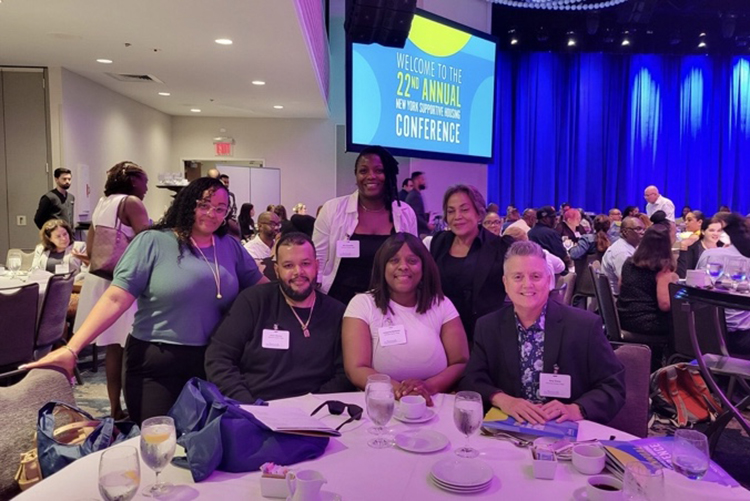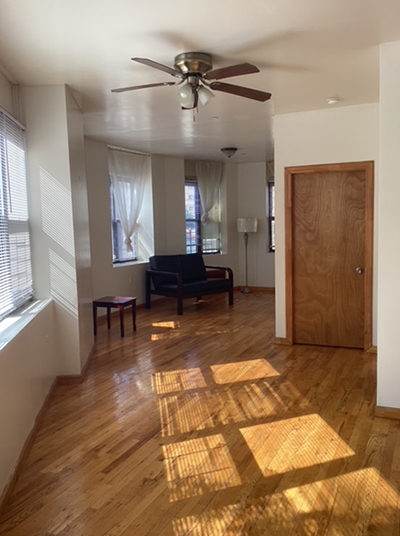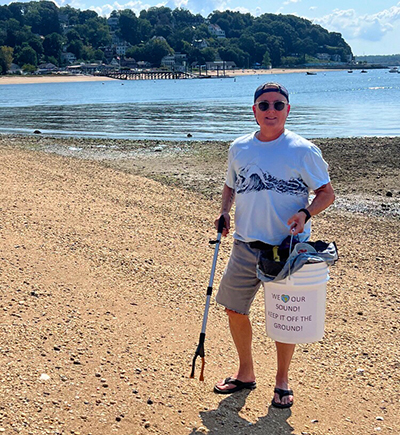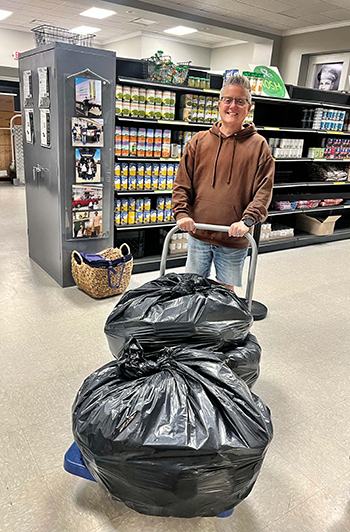One Director's Story: The Road to Permanent Supportive Housing

Director of Permanent Supportive Housing Amy Greco (far right) with her team at the 21st Annual New York Supportive Housing conference.
Amy Greco is the Director of Permanent Supportive Housing. Originally from Nebraska, she moved to New York City in the early 1990s, where she began her dedicated career spanning three decades. From a young age, she grew up with a deep sense of empathy and compassion.
Amy began her career at Narco Freedom, Inc., an addiction treatment services provider, where she spent the next 23 years. It was an unexpected detour for her, as she had always imagined she would ‘become a cop.’ But the call to service stayed with her. She has tirelessly served vulnerable populations, including those struggling with substance abuse, mental health challenges, HIV/AIDS, and homelessness.
 Over the years, she has honed her expertise, demonstrating an unwavering commitment to improving the well-being of those in need. Working with vulnerable populations is her ‘comfort zone.’ She has amassed certifications to support their needs, including Certified Alcoholism and Substance Abuse Counselor, Internationally Certified Drug and Alcohol Abuse Counselor, Certified Prevention Professional, and Certified Peer Recovery Advocate.
Over the years, she has honed her expertise, demonstrating an unwavering commitment to improving the well-being of those in need. Working with vulnerable populations is her ‘comfort zone.’ She has amassed certifications to support their needs, including Certified Alcoholism and Substance Abuse Counselor, Internationally Certified Drug and Alcohol Abuse Counselor, Certified Prevention Professional, and Certified Peer Recovery Advocate.
While at Narco Freedom, Inc., Amy developed new programs such as NYNY Connect, a program in the 1990s that provided case management services to women with high-risk pregnancies who resided in the Mott Haven section of the Bronx. The program evolved, extending the client base to individuals who were HIV+. Over time, the program became the current incarnation we know today as Hope Care Management, a care coordination program that supports people with chronic or severe medical conditions or a behavioral health disorder.
In 2015, Amy had an opportunity to join Samaritan Daytop Village, holding various titles until being approached about the Permanent Supportive Housing role. Permanent Supportive Housing was a growing niche for the agency, and in need of a reliable, dependable leader, Amy was tapped for the Director position.
Permanent Supportive Housing (PSH) is a housing model that combines affordable housing assistance with support services to address the needs of formerly unhoused people. PSH provides tenants with housing stability and access to comprehensive services such as treatment for substance use and mental health disorders, healthcare, and employment support. The goal, says Amy, is to “help individuals achieve and maintain housing stability while improving their quality of life.”
PSH tenants receive subsidy/voucher rental assistance such as CityFHEPS, FHEPS, and Section 8. Tenants are required to pay a tenant portion/share if deemed applicable. At present, all tenants are referred from the NYC Department of Homeless Services as they are living in Transitional Housing (shelter).
 There are many benefits to PSH. “Permanent Supportive Housing provides safety and security, improved health outcomes, increased independence, reduction in homelessness, and community integration,” Amy explained.
There are many benefits to PSH. “Permanent Supportive Housing provides safety and security, improved health outcomes, increased independence, reduction in homelessness, and community integration,” Amy explained.
Currently, Samaritan has 21 PSH addresses in the Bronx and Harlem. The units are available to families, military veterans, and single adults. When at capacity the nonprofit is providing housing to 324 families, including their children, as well as 144 single adults.
“Permanent Supportive Housing is cost-effective for communities,” said Amy. “It reduces the need for emergency services, hospital interventions, and hopefully the involvement of law enforcement.”
Amy’s role allows her to continue to help others and to “drive systemic change in addressing the interconnected challenges of substance abuse, mental health, and homelessness,” she adds. “I have witnessed transformation and resilience.”
 Sometimes the hardest part of Amy’s job is engaging tenants who clearly need services but choose not to participate. “You have to peel the layers back and meet them where they are with the hope they become receptive to receiving the help they need.” But Amy and her team do not give up. She explains, “We present it in a different package until they are ready to open it.”
Sometimes the hardest part of Amy’s job is engaging tenants who clearly need services but choose not to participate. “You have to peel the layers back and meet them where they are with the hope they become receptive to receiving the help they need.” But Amy and her team do not give up. She explains, “We present it in a different package until they are ready to open it.”
Currently, Amy and the PSH team have tenants living in units that are being renovated in the Wakefield section of the Bronx. These two buildings are being modernized and upgraded from shelters into Permanent Supportive Housing. There are nine buildings in Harlem that will undergo the same type of modernization. These buildings are currently occupied, and Amy and her team are providing the necessary social services.
Looking to the future, Samaritan Daytop Village will be breaking ground later this year on a project near New York City’s High Bridge Park called Highbridge. The high-rise will be a brand new, fully electric, mixed-use development built to Passive House Institute (Phius) and Energy Star certification standards and offer 125 affordable and 190 supportive apartments. This is a project that will set the standard for the industry and Samaritan is once again on the forefront of change.
PSH is complex, yet Amy believes she has an incredible team that she has the privilege of leading. “Their unwavering commitment, compassion, and resolve are the backbone of our work,” Amy says. “Every day, they not only bring their expertise but their hearts to work. It’s easy to focus on outcomes and metrics, but the true measure of our success lies in countless moments of kindness, patience, and understanding.”
“Even if I am awakened in the middle of the night, it’s still rewarding,” says Amy. “I love what I do, it’s hard, but I couldn’t imagine doing anything else.”
Outside of her professional life, Amy is active in the LGBTQIA+ community. She also enjoys volunteering for a local food pantry and participating in beach clean-ups.
